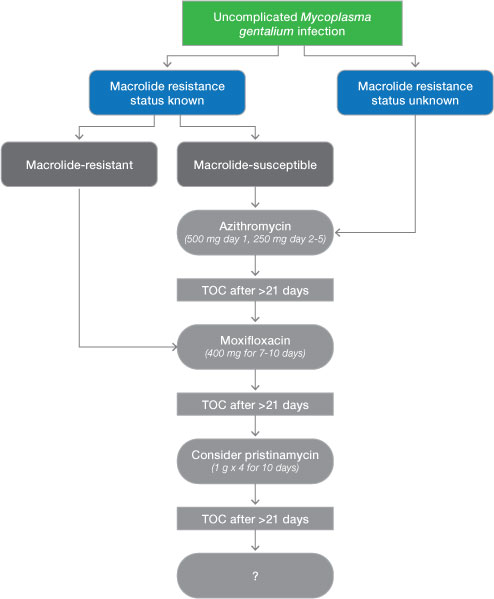A recent review article discusses the widespread antimicrobial resistance (AMR) developing in Neisseria gonorrhoeae and Mycoplasma genitalium sexually transmitted infections (STIs).1 The authors describe compounding factors, such as uncontrolled use of antimicrobials and limited surveillance of AMR, likely leading to an increased rate of resistance to essentially all available microbial treatments. In outlining available treatment options for the multi-drug resistant bacteria, focus is placed on effective diagnostics that include frequent testing for AMR in order to guide effective treatment decisions.
The review specifically discusses the pitfalls of syndromic management of nongonococcal urethritis (NGU) in the light of recently updated European Guidelines on NGU and M. genitalium infection.2,3 The updated guidelines call for routine nucleic acid amplification testing (NAAT) to be supplemented with molecular detection of macrolide-resistance-mediating mutations. Knowing the resistance status of an uncomplicated M. genitalium infection (Figure 1) will guide first-line treatment choices towards suitable therapy.
Figure 1: Antimicrobial Therapy of Uncomplicated Mycoplasma genitalium

The current rates of AMR are predicted to persist, if not worsen, due to the high number of infections and the remarkable ability of these organisms to develop resistance. Being familiar with current guidelines on diagnostic and treatment procedures and utilising routine AMR testing will help minimise the development of AMR and substantially improve patient management. Click here for more information on the article in Nature Reviews Urology.1
1. Unemo, M. & Jensen, J.S. ‘Antimicrobial-resistant sexually transmitted infections: gonorrhoea and Mycoplasma genitalium’. 2016. Nat. Rev. Urol.268. Published online 10 Jan 2017. doi:10.1038/nrurol
2. Jensen, M. et al. 2016 European guideline on Mycoplasma genitalium infections.
3. Horner, PJ. et al. 2016 European guideline on the management of non-gonococcal urethritis.








